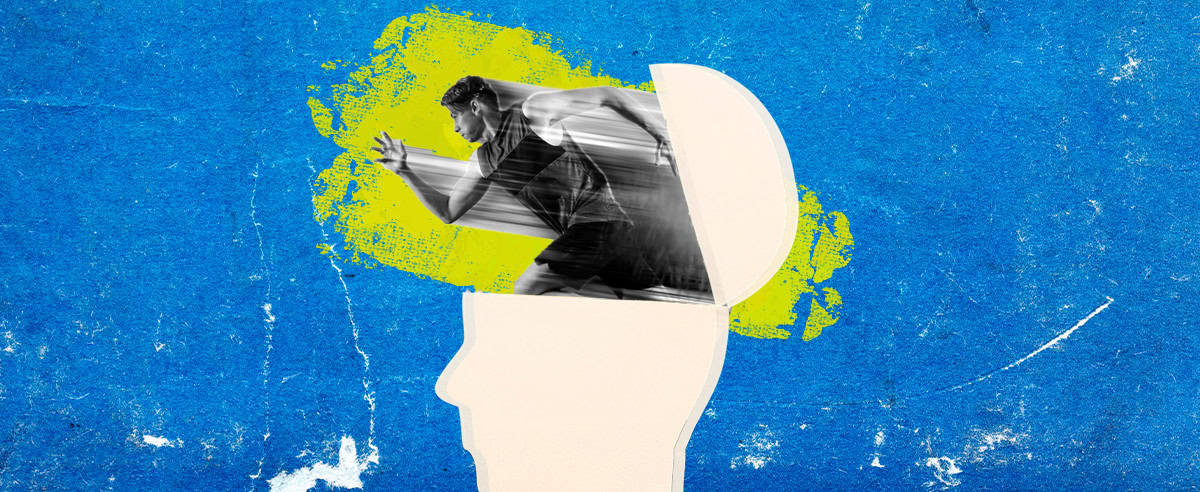Editorial
There's no denying the benefits that physical activity can have on both our physical and mental health. Regular exercise can empower us by positively boosting self-esteem and self-worth and enhancing our overall quality of life. Yet, for many, access to the necessary equipment and green spaces to foster and support physical activity remains unevenly distributed across Europe. This inequality leaves many people, particularly women and older people, at a disadvantage when it comes to participating in regular exercise. Caroline Costongs discusses the benefits of physical activity and calls for more action for initiatives that encourage positive mental health through a biopsychosocial model and a human rights-based approach.
Running the Brussels 20km is really a very nice activity to do. Every year, over 35,000 people participate, running or walking across the city, passing through its iconic areas such as Cinquantenaire and the European Quarter, as well as the city's large forest park. This year was a record breaking year for the race, with over 45,000 people crossing the finishing line.
There is always a lot of ambiance during this annual spectacle. People are playing music, cheering and making fun, and holding banners such as ‘tap here for more energy’ or 'straight on.’ Yet amongst all of these banners, there was one that really stuck out for me, simply asking, ‘Why?’. This question gave me quite some food for thought while I ran uphill, struggling with the last few kilometres.
The answer to this question lies in the undeniable fact that physical activity is important for our health. There is ample evidence, that shows how physical activity contributes to overall health and wellbeing. It prevents and manages heart disease, diabetes, and some cancers, and regular exercise improves our brain health in various ways. Physical activity also reduces the risk of Alzheimer’s and dementia, reduces stress levels, and improves memory and mood. It lowers the risk of depression and prevents anxiety disorders, so in short, working out is crucial for our mental health.
So, while I'm running around Brussels as part of the Mental Health Europe team, I'm wondering why we aren't doing more to enhance people’s opportunities, capabilities, and motivation to be physically active for mental health and wellbeing? It’s encouraging to see improved cycling infrastructure and active travel policies emerging in cities, but serious physical activity policy measures still lag.
Good practices such as physical activity on prescription are too often stuck in pilot phases. Social prescribing—an approach that connects people to activities, and services in their community to meet the practical, social, and emotional needs that affect their health and wellbeing—should instead be embedded in community health systems. Mandatory physical education in schools and after-school activities should be boosted as part of whole-of-school approaches to health (as recommended in our Schools4Health initiative). Wide implementation of proven measures is vital such as in our Icehearts project approach, which uses team sports as a tool for engaging children in need and improving mental health. This is particularly important for children and young people whose brain development depends on physical exercise.
In addition, while running and walking are, in some respects, more accessible than other sports, and with participation in the Brussels 20K being a little more affordable for some, huge inequalities still remain in physical activity engagement. People experience various barriers, depending on ages, genders, ethnicities, when living with disabilities or in areas of socio-economic deprivation. This means that if we are to improve mental health and wellbeing for everyone and use physical activity as one of the means to do so, we need to take these barriers at heart and only implement those proven policy measures or practices that are supportive in overcoming them.
This edition of our magazine demonstrates a range of measures that impact mental health, improve the wellbeing of people, and showcase ways of how to be inclusive in all our approaches. Check out the article about SLOfit, a groundbreaking programme to encourage more physical activity in Slovenia. The promotion of mental health at work, for example, is another important avenue where more action is needed. We are honoured to have an article from Deputy Prime Minister and Minister of Social Affairs and Public Health of the Belgian Government, Frank Vandenbroucke, about strategies to promote mental health and ensure people with mental health issues stay and/or return to work.
We hear from Monica Padial, from the Regional Ministry of Health, and Consumer of Andalusia (Junta de Andalusia) who discusses the 'Open Window to the Family' programme, which helps to nurture wellbeing for everyone regardless of the family structure. We also head to Poland to find out how one man's experience inspired the creation of a foundation dedicated to reducing the stigma surrounding mental health.
Homelessness is often linked to people who find themselves in situations that are difficult to cope with, interfering with their mental health and resilience. We hear from Elisabeth Hammer, Neunerhaus's Managing Director, to learn how, in Austria, they help support those facing the complexities of homelessness. We also feature insights from a young voice discussing the challenges facing young people in Europe, including the impacts of COVID-19, the climate crisis, and educational budget cuts. Additionally, as June is recognised as a month to celebrate and commemorate the LGBTQ community, we delve into the challenges that trans people encounter when accessing healthcare in Europe, with insights from TGEU, the University of Brighton, and Gendered Intelligence.
The variety of articles show that there is not one way in which mental health of the population can be promoted and safeguarded. Getting people of all ages and backgrounds more physically active is only one effective strategy. However, more is needed. Collaboration across sectors, as part of a wellbeing economy, can help to develop and implement policies, services, and programmes that foster positive mental health from a biopsychosocial model as well as a human rights-based approach.
Happy reading!
- Caroline.

Caroline Costongs
Caroline Costongs is Director of EuroHealthNet and expert in public health and health promotion. Caroline leads a multi-disciplinary team working on European and (sub)national policy, advocacy, research and capacity building addressing health inequalities. Caroline is active in various EU and WHO fora, Advisory Boards and various EU projects, and is a member of the ICC – International Council for the European Public Health Conference.
